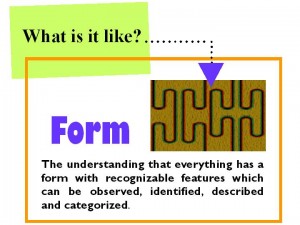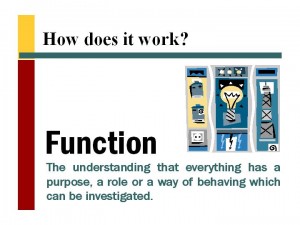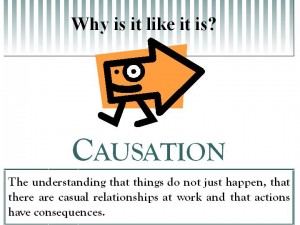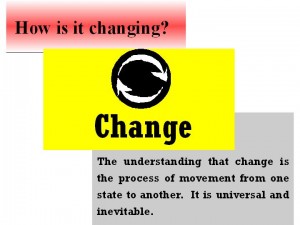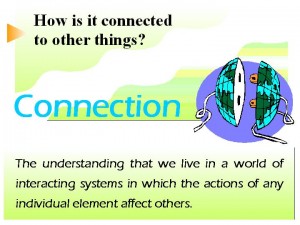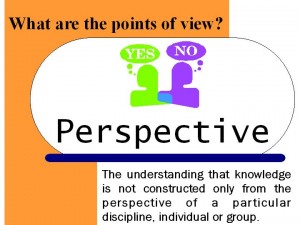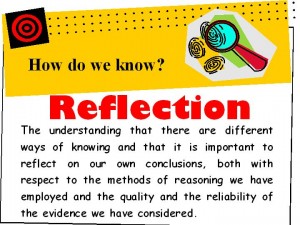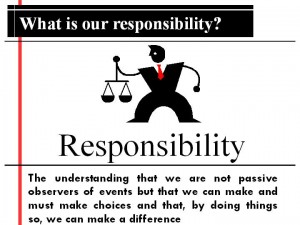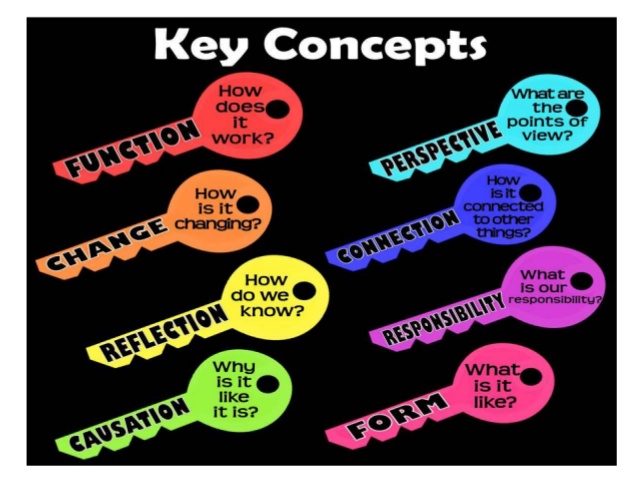
Key Concepts
These concepts provide an important framework for the ideas and issues we explore with our students.
Form: what is it like?
The understanding that everything has form with recognisable features that can be observed, identified, described and categorised.
Function: How does it work?
The understanding that everything has a purpose, a role or a way of behaving that can be investigating.
Causation: Why is it like it is?
The understanding that things do not just happen, that there are causal relationships at work, and that actions have consequences.
Change: How is it changing?
The understanding that change is the process of movement from one state to another. It is universal and inevitable.
Connection: How is it connected to other things?
The understanding that we live in a world of interacting systems in which the actions of any individual element affect others.
Perspective: What are the points of view?
The understanding that knowledge is moderated by perspectives; different perspectives lead to different interpretations, understandings and findings; perspectives may be individual, group, cultural or disciplinary.
Responsibility: What is our responsibility?
The understanding that people make choices based on their understandings, and the actions they take as a result do make a difference.
Reflection: How do we know?
The understanding that there are different ways of knowing, and that it is important to reflect on our conclusions, to consider methods of reasoning, and the quality and reliability of the evidence we have considered.

